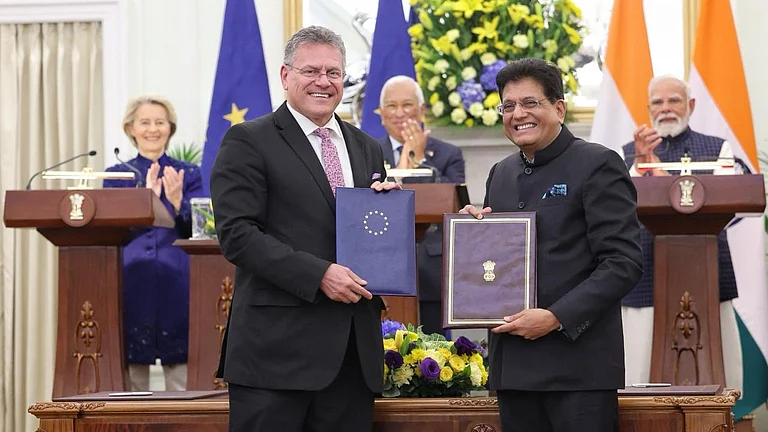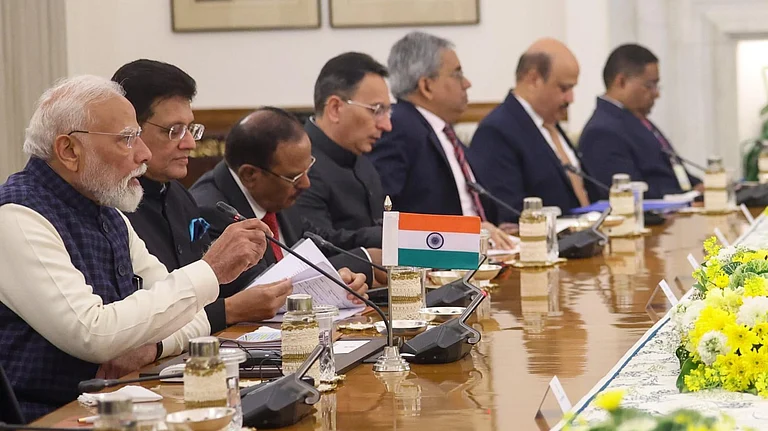The decision of the European Union (EU) to impose a carbon tax on certain sectors like metals from 2026 will only hurt global trade and not help in containing carbon emissions, think tank GTRI said on Sunday.
The Global Trade Research Initiative (GTRI) said that European Commissioner Wopke Hoekstra remarks that the sole aim of CBAM (Carbon Border Adjustment Mechanism) is to prevent carbon leakage which has significant “flaws”.
It added that fossil fuels contribute to 90 per cent of Greenhouse and 75 per cent of carbon emissions and if decarbonization is the goal, the EU should heavily tax fossil-fuel imports.
“Carbon leakage is the phenomenon of companies moving production to countries with weaker environmental regulations to avoid paying carbon prices in the EU. This objective could have been achieved by merely taxing imports from the EU firms, which have shifted production to other countries. However, the EU chose to tax all world imports through CBAM,” GTRI Co-Founder Ajay Srivastava said.
He argued that a firm may relocate to another country to access better technology, cheap labour, tax incentives, subsidised land and power and not just to evade carbon taxes.
“The EU chose to ignore such key competitive reasons. The EU thus is thus opposed to the concept of offshoring of production. CBAM will not reduce global emissions, as it does not stop importing high-emission goods but merely taxes them,” he said adding “The CBAM will hurt global trade and not stop carbon leakage”.
According to the UNCTAD Trade and Development Report 2021, CBAM is estimated to reduce global carbon emissions by not more than 0.1 per cent, he said.
The think tank in its report claimed that the real reasons the EU introduced CBAM are to protect uncompetitive local industries from cheaper imports; to earn considerable revenue to fund its budget; and to operationalize the trillion-dollar subsidy initiative.
"If this disrupts world trade, the EU is okay. The EU needs this money to continue to provide substantial subsidies to its firms and farmers. For instance, the European Green Deal aims to raise EUR 1 trillion in the next ten years, with EUR 503 billion coming from the EU budget. The new regulations can provide a full share of the EU budget,” Srivastava said.
The European Commission on Friday said the sole aim of CBAM -- a tax the European Union plans to impose on energy-intensive goods from countries like India and China on carbon-intensive sectors -- is to prevent carbon leakage, a situation where companies decide to shift out their production from a country with stringent policies.
The commission stated that the CBAM aims to set a fair price on the carbon emitted during the production of energy-intensive products, like iron, steel, cement, fertilizers and aluminium, entering the EU. It also encourages cleaner industrial production in non-EU countries. Companies meeting the EU's carbon emission standards are exempt from this.
The carbon tax will come into effect from January 1, 2026. During the trial period, which started on October 1, 2023, companies from seven carbon-intensive sectors, including steel, cement, fertiliser, aluminium and hydrocarbon products, have to share emissions data with the EU.


























.jpg?w=200&auto=format%2Ccompress&fit=max)




